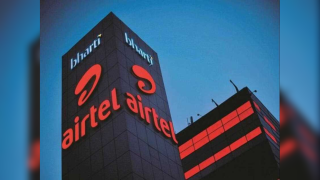It means that for US$6.2 billion in cash, Ericsson now has a foothold in the lucrative CPaaS segment as it moves on its strategy to expand presence in wireless enterprise and broaden its global offerings. And, according to Ericsson president and CEO Börje Ekholm (pictured), it will allow CSPs to "better monetise their investments in network infrastructure by creating new API-driven revenues".
The deal value represents a 28% premium on Vonage's Friday trading price and is expected to close in the first half of next year subject to Vonage shareholder approval, regulatory approvals, and other customary conditions.
Ekholm said: "Imagine putting the power and capabilities of 5G, the biggest global innovation platform, at the fingertips of developers. Then back it with Vonage’s advanced capabilities, in a world of eight billion connected devices. Today we are making that possible."
He continued: “Today Network APIs are an established market for messaging, voice and video, but with a significant potential to capitalise on new 4G and 5G capabilities. Vonage’s strong developer ecosystem will get access to 4G and 5G network APIs, exposed in a simple and globally unified way. This will allow them to develop new innovative global offerings."
"Finally, businesses will benefit from the 5G performance, impacting operational performance, and share in new value coming from applications on top of the network," he added.
In the longer term, Ericsson said it intends to offer "value benefits to the full ecosystem" – i.e. telecom operators, developers, and businesses – by creating "a global platform for open network innovation, built on Ericsson and Vonage’s complementary solutions".
Vonage Communications Platform (VCP) serves over 120,000 customers and more than one million registered developers globally.
VCP accounts for approximately 80% of Vonage’s current revenues and delivered revenue growth in excess of 20% in the three-year period to 2020, with adjusted EBITDA margins moving from -19% in 2018 to break-even in the 12-month period to 30 September 2021. Vonage has a 20% annual growth projection for VCP "in the coming years".
The API (Application Programming Interface) platform within VCP allows developers to embed high quality communications - including messaging, voice and video - into applications and products, without back-end infrastructure or interfaces. Vonage also provides Unified Communications as a Service (UCaaS) and Contact Center as a Service (CCaaS) solutions as part of the VCP.
Vonage recorded total sales of $1.4 billion in the 12-month period to 30 September, and over the same period delivered an adjusted EBITDA margin of 14% and free cash flow of $109 million.
Rory Read, CEO of Vonage, commented: “Ericsson and Vonage have a shared ambition to accelerate our long-term growth strategy. The convergence of the internet, mobility, the cloud and powerful 5G networks are forming the digital transformation and intelligent communications wave, which is driving a secular change in the way businesses operate. The combination of our two companies offers exciting opportunities for customers, partners, developers and team members to capture this next wave.
“We believe joining Ericsson is in the best interests of our shareholders and is a testament to Vonage’s leadership position in business cloud communications, our innovative product portfolio, and outstanding team.”
Why enterprise?
Vonage operates in the Communication Platform as a Service (CPaaS) segment, which allows API-enabled communications services that broadens Ericsson's focus to capture a market that is demonstrating 30% annual growth. In fact, Ericsson said the CPaaS market is expected to reach values of $22 billion by 2025.
Combine this with 5G and Ericsson said the two can accelerate enterprise digitalisation and develop advanced APIs.
Such APIs can be applied to help ensure the quality of critical services like telemedicine, immersive virtual education and autonomous vehicles as well as experiential performance benefits in gaming, augmented and extended reality, over wireless.
The deal echoes an industry-wide shift to capture the burgeoning enterprise communications market, as enterprises increasingly demand programmable networks and will combine Vonage’s customer base and developer community with Ericsson’s network experience and 26,000 R&D personnel.
The acquisition will be financed through Ericsson’s existing cash resources, which amounted to SEK88 billion as of 30 September on a gross basis, and SEK56 billion on a net basis.





